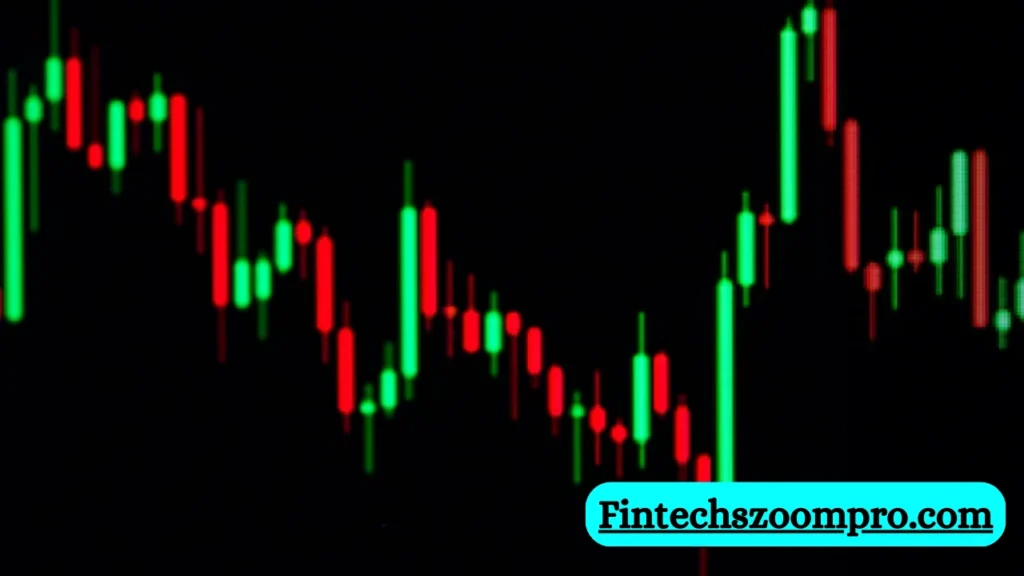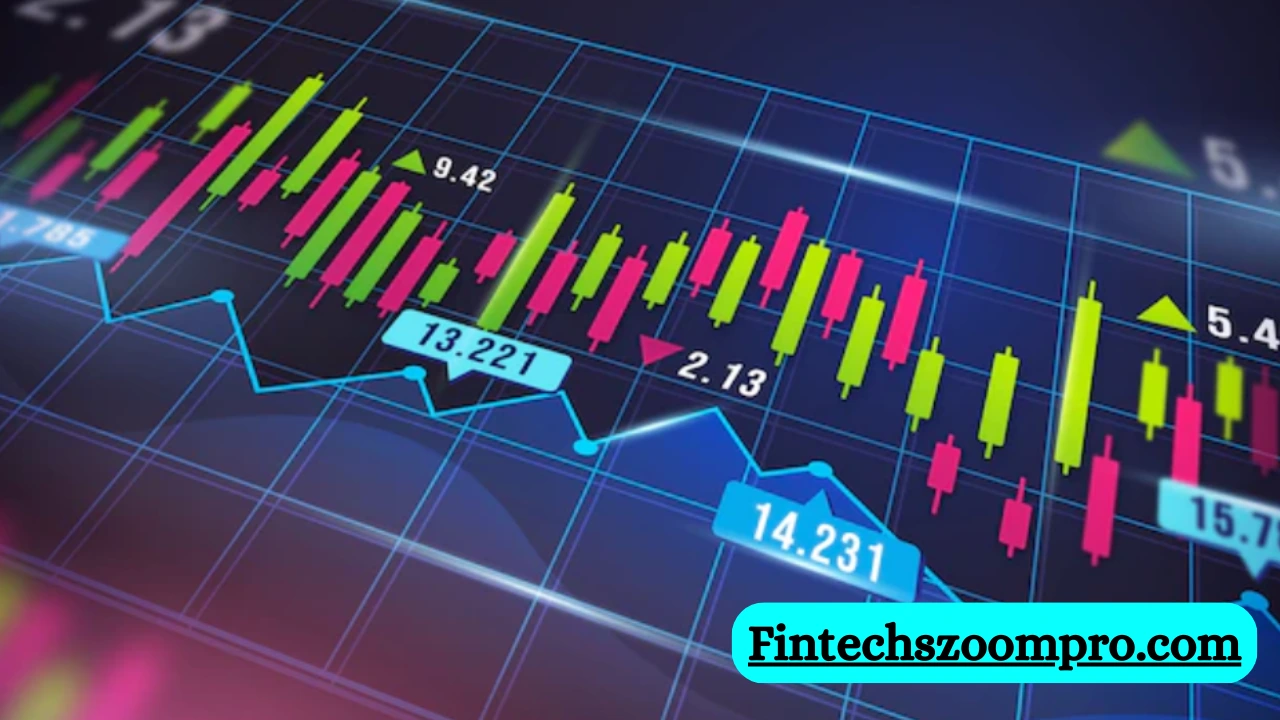As a worldwide pioneer in financial news and market insights, Dow Jones has the foremost strong presence on FintechZoom, which offers fintech advancements and bits of knowledge into the commercial center. Dow Jones gives up-to-the-minute news, in-depth investigation, and comprehensive information on all the worldwide financial markets and prepares businesses and investors with the data required to form choices. On FintechZoom, the collaboration opens up to trusted assets, such As the Divider Road Diary, Barron’s, and MarketWatch, giving profitable points of view on stocks, commodities, fintech patterns, and financial advancements.
This association bridges the gap between conventional budgetary skills and cutting-edge fintech groups of viewers. Whether following the Dow Jones Industrial Average, understanding advertises developments, or exploring digital change in funds, Dow Jones’s substance on FintechZoom guarantees that users remain ahead in the fast-paced world of financial matters and innovation. They offer a trusted, forward-looking focal point on the advancing budgetary scene.
What Is Dow Jones?
Dow Jones is a financial information and news company that’s known for worldwide trade bits of knowledge, advertising information, and comprehensive announcing. The company was set up in 1882 by Charles Dow, Edward Jones, and Charles Bergstresser. It is fundamentally popular for the Dow Jones Mechanical Normal, which is a standard stock index measuring the execution of 30 essential open companies within the Joined together States.
In addition to the DJIA, Dow Jones possesses and operates conspicuous distributions like the Divider Street Journal, Barron’s, and MarketWatch, which provide financial news, investment appeal, and advertising patterns. It could be a backup of News Corp and proceeds to play a crucial part in forming how people and education get its worldwide financial scenes.
Dow Jones is dependable for financial specialists, examiners, and businesses worldwide because it accurately announces the total, in-depth scope of worldwide markets, financial matters, and industry patterns.
Main Competitors
| Category | Competitor/Stock Name |
|---|---|
| Major U.S. Indices | NASDAQ FintechZoom, SP500, QQQ Stock, SPY Stock, INDEXDJX: DJI Stock, Dow Jones |
| Global Indices | FTSE 100 Stock, STOXX 600, Nikkei 225, Dax Fintechzoom, HSI Stock, ASX |
| Tech Stocks | Tesla Stock, NVDA Stock, AMD Stock, Microsoft (MSFT) Stock, Google Stock, Meta Stock, Apple Stock, Amazon Stock |
| Auto & EV Stocks | Ford Stock, General Motors (GM), Rivian Stock, MULN Stock, Lucid Stock, NIO Stock, Plug Stock |
| Entertainment & Media | Netflix Stock, Disney Stock, Roku Stock, AMC Stock |
| Retail & Consumer Goods | Walmart Stock, Costco Stock, Amazon Stock |
| Pharma & Biotech | Pfizer (PFE) Stock |
| Industrial Giants | General Electric (GE), Boeing (BA) Stock |
| Energy & Commodities | Chevron Stock, Gold Price, Silver Price |
| Fintech & Crypto | Ripple Stock, SQ Stock, FintechZoom Pro |
| Financial Institutions | BAC Stock |
| Software & IT | Adobe Stock, CRM Stock, IBM Stock, Intel Stock, Pltr Stock |
History Of Dow Jones
Dow Jones & Company was established in 1882 by three writers: Charles Dow, Edward Jones, and Charles Bergstresser. The objective was to supply America’s developing speculator and dealer community with sound money-related and trade news. At first, the company dispersed financial bulletins, which came to be called “flimsies,” to supporters.
In 1889, it propelled The Wall Street Journal, which became one of the world’s foremost trusted and persuasive financial daily papers. The article made Dow Jones a critical pioneer in financial news coverage.
One of the foremost recognizable stock advertising lists is the Dow Jones Mechanical Normal, made in 1896 by Charles Dow. It was planned to track the execution of key mechanical companies and serve as a benchmark for advertising patterns.
Over a long time, Dow Jones has included Barron’s, the week-by-week monetary magazine’ in its portfolio and MarketWatch’ in its online stage. The gathering was obtained by News Corp in 2007, encouraging the boost of Dow Jones’ worldwide reach. Nowadays, the company is improving with the Dow Jones FintechZoom app as a foundation for both advertising experiences and details of financial investigation.
Recent Dow Jones Performance Highlights
| Metric | Details |
|---|---|
| Record High (Dec 2023) | $39,131.53 |
| Lowest in 5 Years (Mar 2023) | $31,429.82 |
| December 2024 Trends | DJIA reached record highs alongside S&P 500 and Nasdaq, driven by a rally in tech stocks. |
How To Use the Dow Jones Fintechzoom App?
The Dow Jones FintechZoom app is a compelling interface to access financial news, market data, and insights from Dow Jones, integrated with FintechZoom’s fintech-focused resources. Here’s how to use the app:
Download and Install
- To download and install the app, go to the App Store (iOS) or Google Play Store (Android) and search for “Dow Jones FintechZoom.”
- Download and install the app on your mobile device.
Sign Up or Log In
- If you’re a new user, create an account, or log in with your existing Dow Jones or FintechZoom credentials.
Set Your Preferences
- Customize your dashboard by selecting preferred market indices, stocks, or news categories (e.g., fintech trends, commodities, or global markets).
Explore Features
- Live Market Data: Access real-time updates on indices like the Dow Jones Industrial Average.
- News and Analysis: Read articles from The Wall Street Journal, Barron’s, and FintechZoom’s editorial team.
- Portfolio Tracking: Track your investments and get custom alerts.
Search and Bookmark
- Use the search feature to find specific financial topics or companies. Save articles or data for later reference.
Enable Notifications
- Stay ahead with push notifications for breaking news, stock alerts, and market insights.
The app makes it easy to stay informed and make data-driven decisions in a fast-paced financial environment.
Main Features Of Dow Jones Fintechzoom

The Dow Jones FintechZoom platform mixes financial intelligence and fintech innovation for the modern investor, business, and financial professional. Here are its key features:
Real-Time Market Data
- Live updates on global indices, including the Dow Jones Industrial Average, NASDAQ, and S&P 500.
- Monitor individual stock performance and commodities like gold, oil, and cryptocurrencies.
Comprehensive News Coverage
- In-depth articles and breaking news from The Wall Street Journal, Barron’s, and FintechZoom’s editorial team.
- Focus on fintech innovations, economic trends, and global markets.
Portfolio Tracking
Create and manage a personalized portfolio to track stock performance and receive change alerts.
Customizable Dashboard
Personalize your experience by selecting preferred industries, companies, and markets to follow.
Fintech Insights
Stay informed about emerging technologies in finance, including blockchain, digital banking, and AI applications.
Interactive Charts and Analytics
Advanced charting tools will help analyze the trends of stocks and the market performance over time.
Push Notifications and Alerts
Be updated with breaking news, stock movements, and shifts in the market.
Educational Resources
Get tutorials, expert opinions, and financial guides to enhance your market knowledge.
This platform is a must-have for anyone who wants to stay ahead in the ever-changing financial landscape.
DJIA’s Impact On Stock Market
The Dow Jones Industrial Average is one of the leading indicators of overall market performance. It monitors the stock prices of 30 major companies to reflect the economic health of the US.
An increase in the DJIA usually indicates that investors are confident and that the economy is sound enough to invest more. A decline in the DJIA may signal economic challenges or market volatility, and this usually leads to caution among investors. Therefore, movements in the DJIA may significantly impact market sentiment and consequently push waves through the overall stock market.
Advantages Of Utilizing Dow Jones Fintechzoom

Access to Thorough Financial Information
Utilizing Dow Jones FintechZoom affords users ready access to the tremendous array of real-time financial information, far from the limited availability of information about only the Dow Jones Industrial Average and a host of essential indices, including the NASDAQ and S&P 500.
The service yields detailed data on stocks, commodities, currencies, and even cryptocurrencies to track trends in a global finance marketplace. As an investor, analyst, or business professional, such information puts you in an easy position to make informed decisions about your business, understand what is happening in the markets, and respond quickly when anything is happening in those markets.
Up-to-the-minute News and Market Information
Dow Jones FintechZoom ensures that users receive news and in-depth information from market leaders such as The Wall Street Journal, Barron’s, and MarketWatch. This constant flow of exact and timely information is invaluable for keeping updated on financial activities and market sentiment.
The information platform gives you the last word by following global financial markets, fintech news, or stocks. Direct access to current news allows investors and other professionals to immediately respond in a fast-changing environment to new market movements, news reports, or shifts in economies, thereby ensuring timely, effective decisions are made.
Tailored Portfolio Administration
The platform allows users to build portfolios to track their investments in real-time. This feature is the most useful for active investors since it enables them to manage and follow through on the performance of stocks, bonds, or other assets in a single place.
Users may also set up alerts on price movements, enabling users to stay on top of holdings and adjust accordingly. Portfolio management features ensure that users see all dimensions of financial health through an understanding of risk, performance measurement, and optimization of the strategies themselves based on data and a market analysis made possible through Dow Jones FintechZoom.
High-end Analytical Tools
Dow Jones FintechZoom delivers high-class analytical tools, allowing a probe into market trends and an individual stock performance analysis of the market in greater detail. Interactive charts, historical data, and advanced filtering options help identify market patterns, understand investment opportunities, and track key performance indicators.
These tools are for seasoned traders or beginners, enabling data-driven decisions. Visualization of data in multiple formats helps users perform both technical and fundamental analyses, gain valuable insights into movements in the market, and forecast future trends with more confidence.
Fintech Insights and Innovations
The app emphasizes the latest fintech trends and is an indispensable resource for anyone interested in the intersection of finance and technology. Whether blockchain, artificial intelligence, digital currencies, or new fintech business models, Dow Jones FintechZoom provides complete coverage of the emerging fintech landscape.
This focus helps understand how new technologies are reshaping financial markets; it provides insights to investors and professionals about the latest trends that may shape future growth. Dow Jones FintechZoom keeps users informed about fintech innovations, therefore staying ahead of others in the fast-paced financial environment.
Educational Content and Experts’ Views
Dow Jones FintechZoom offers a wide selection of educational content comprising articles, tutorials, and expert commentary on market analysis. These resources are designed to help users, especially beginners, build their knowledge and understanding of financial markets and fintech innovations.
Access to expert opinions provides valuable insights into market strategies, trading techniques, and investment opportunities, helping users make more informed decisions. Whether you’re learning about portfolio management, economic indicators, or new fintech technologies, these resources empower users to enhance their financial literacy and improve their decision-making processes in the market.
Risks Of Using Dow Jones Fintechzoom
Market Volatility Risk
Using Dow Jones FintechZoom can expose users to market volatility risks. Financial markets can fluctuate unpredictably, influenced by factors like economic downturns, political instability, or unforeseen global events. While the platform updates are real-time, users must remember that markets may change instantly.
Losses can be incurred on that day, especially if someone makes short-term investments. The platform offers data and trends, but trends don’t always work as a predictor of what happens in the future. In reality, no amount of data or analysis can help avert the risks involved with the market. That’s why careful risk management strategies are needed.
Over-Reliance on Data
Relying too much on the data and analysis Dow Jones FintechZoom provides when making decisions is risky. Financial data, though vast, is sometimes incomplete, delayed, or subject to biases. Users might become overconfident with their interpretation of market trends, thinking that historical data always forecasts future performance.
This needs to be balanced with independent research and professional advice. Over-reliance on the app’s features without consideration of other factors, such as economic reports or geopolitical news, will skew judgment, leading to potential losses or missed opportunities in the market.
Cybersecurity and Data Privacy Concerns
As a digital platform, Dow Jones FintechZoom poses cybersecurity risks. The storage and transmission of sensitive personal and financial information can be vulnerable to hacking, phishing attacks, or data breaches.
Users who access the platform through unsecured networks or fail to use vigorous security practices (like two-factor authentication) may expose themselves to identity theft or financial fraud. Dow Jones and FintechZoom work to implement robust security measures, but users must be vigilant and proactive in protecting their data. Failing to do so could result in serious financial and identity-related consequences.
Subscription and Hidden Fees
Dow Jones FintechZoom is a valuable tool but comes with a cost in terms of subscription fees or hidden fees. Users can subscribe to premium content or data feeds for more insights, which will accumulate over time. Subscription models may come with tiered pricing with access to different levels of features, so some users end up paying more than expected for access to necessary tools.
Moreover, unexpected fees or changes in pricing plans may occur due to the platform updating its services or adding new paid features. It is essential to understand the fee structure well so that one does not incur unnecessary financial burdens.
Inaccurate Predictions and Analysis
The financial analysis and insights provided by Dow Jones FintechZoom can sometimes be inaccurate or based on incomplete information. Although the application employs advanced analytics and expert opinions, economic predictions are inherently uncertain.
Market conditions, corporate earnings reports, or geopolitical events may diverge from the anticipated trends. Users should be cautious when making significant financial decisions based solely on the app’s recommendations. Any analysis needs to be viewed as part of a broader investment strategy, with multiple data sources factored into making trades or investments to avoid the risk of losing money from incorrect assumptions or events.
Is Dow Jones A Safe Investment?
Investing in the Dow Jones Industrial Average (DJIA) is often deemed relatively safe, particularly for investors with long-term goals. The DJIA comprises 30 major, stable companies across various industries and provides an element of diversification.
Stocks in the Dow have lower volatility than other investments, which helps stabilize the investment during market decline. Thus, the Dow is more attractive for conservative investors looking for a stable investment that can last.
However, there are inherent risks. Economic slowdowns, geopolitics, and interest rate movements affect Dow stocks, and with them, potential downturns may arise. For example, experts predict a deceleration in growth in the near term and recession possibilities, which will inevitably impact market performance.
This means that even though investing with Dow in US equities is safer, it doesn’t mean it’s impenetrable to uncertainties that affect the broader economic picture. So, great care in risk management is always in order.
Should I Invest?
Whether one invests in the Dow Jones Industrial Average (DJIA) depends on investment goals, risk tolerance, and market perception.
Why You Should Invest in the Dow Jones:
It is diversified. The 30 large companies from several industries make up the Dow Jones, which gives one a level of diversification instead of investing in stocks.
- Stability: The DJIA often incorporates stable companies with a past track record of stability and dividend pay-outs, thus becoming very attractive to conservative investors.
- Long-term Growth: The Dow has historically provided very reasonable returns for long-term investors who want to gradually grow their capital.
Disadvantages of Investing in the Dow Jones:
- Economic Sensitivity: Even though it may be stable, the Dow is still susceptible to an economic downturn, an increase in interest rates, or a recession, which could impair its performance.
- Limited Potential Growth: The Dow contains mature, primarily large companies, which do not necessarily have the same high growth potential as the smaller, more energetic companies.
Investing in the Dow could be a good option if you want a safe, stable investment with moderate returns but can tolerate some level of market risk. However, diversifying with other assets might be wise if you seek higher growth and can tolerate more volatility. It is always a good idea to consult a financial advisor to tailor your investment strategy.
Future Prediction
The Dow Jones FintechZoom for 2024 depicts a fair outlook, where challenges on the scale match possible gains. The Dow Jones Industrial Average contains significant companies in different business lines, such as technology and financial services.
Hence, an index that includes any of them will benefit if the economy remains relatively stable. Fintech advancements and their growing utilization in algorithmic trading have been viewed positively by many analysts as a means of boosting the indices.
However, risks remain because of global geopolitical instability, the Federal Reserve’s possibility to increase interest rates, and other macroeconomic factors. These will result in market volatility and have a ripple effect on the direction of the DJIA.
Nonetheless, if corporate earnings remain strong and economic statistics remain positive, the trend can be moderate throughout the year. Therefore, exposure to the DJIA for 2024 should be based on these factors.
Expert Opinion
Experts are presenting several investment strategies for 2024, including risk management, long-term growth, and adaptation to emerging trends.
- Building a Financial Foundation: Experts emphasize the importance of securing an emergency fund before making high-risk investments. This provides financial stability and protects you from market volatility, especially when unexpected expenses arise.
- Tailoring Investment Strategies: Your investments should be tailored to your goals and timeline. Higher-risk assets make sense if you are saving for a retirement or long-term growth focus. Lower-risk, liquid asset types are recommended if you invest for short-term purposes.
- Capitalizing on Long-Term Trends: Sustainability and technological advances will drive growth in the future market. The renewable energy and disruptive technologies industries could offer rich opportunities as the global economy is poised to shift toward decarbonization and tech innovation.
The key to a successful investment strategy is striking the right balance between short-term needs and long-term growth potential.
Dow Jones Live Updates
As of early December 2024, the Dow Jones Industrial Average (DJIA) remains near record levels as market sentiment remains positive. It is driven by good performance from sectors such as technology and financial services, with economic resilience also still intact. However, caution remains in place for potential interest rate adjustments and inflation trends that could create volatility.
Investors need to remain vigilant about the vagaries of the market, for it has been known to deliver mixed results in the last month of the year, mainly as it tends to record slight dips and occasional significant increases during this period.
Conclusion
The Dow Jones Industrial Average (DJIA) remains a solid indicator of US equity markets owing to consistent performances from large-cap sectors such as tech and finance. However, even with this relatively stable index, the Dow is still vulnerable to economic and geopolitical risks that may lead to volatility in the short term.
The market has many areas that need caution, especially as interest rates and inflation change. Still, for a long-term investor, the Dow is one of the more stable indices for steady growth. The only way to control risks in a dynamic landscape is by diversifying and keeping up with information.
FAQs
What is the DJIA?
DJIA is the stock market index, compiling 30 of the largest and most influential companies in the United States. It’s one of the major performance indicators in the US stock market.
How does DJIA influence the stock market?
DJIA indicates the condition of large US companies, thereby showing investors significant market trends. Investor psychology depends on DJIA, as it can analyze economic conditions.
What sectors are growing the Dow Jones in 2024?
Technology, finance, and consumer goods sectors are experiencing significant growth in the Dow in 2024, with the leadership of tech companies.
Is the Dow Jones a safe investment for long-term growth?
DJIA is a relatively stable long-term investment and quite conservative for getting moderate returns.
How does interest rate fluctuation affect the DJIA?
Rising interest rates may increase borrowing costs, slowing economic growth and affecting the stock prices of companies in the DJIA.
What are the risks of investment in the Dow Jones in 2024?
Risks: Economic slowdowns, geopolitics, and volatility brought on by interest rate movements or inflation will likely negatively impact the performance of stocks within the Dow.
Should I buy Dow Jones stocks now or wait for a dip?
It all depends on your investment strategy. For long-term investors, buying when the market is down would be a good strategy. However, short-term investors may want to wait for better conditions.
How do I invest in the Dow Jones Industrial Average?
You can invest in the DJIA through exchange-traded funds (ETFs) that track the index or by buying individual stocks that are part of the Dow.
Which Dow Jones 2024 stocks are the highest performers?
Tech leaders, such as Apple and Microsoft, and industrials, including Boeing and Caterpillar, are some of the best Dow Jones stocks in 2024 and contribute to its growth.
How will the DJIA fare during a recession?
The DJIA is likely to go down when the economy starts to deteriorate, but historically, the index always bounces back in the long run as the economy picks up again.

